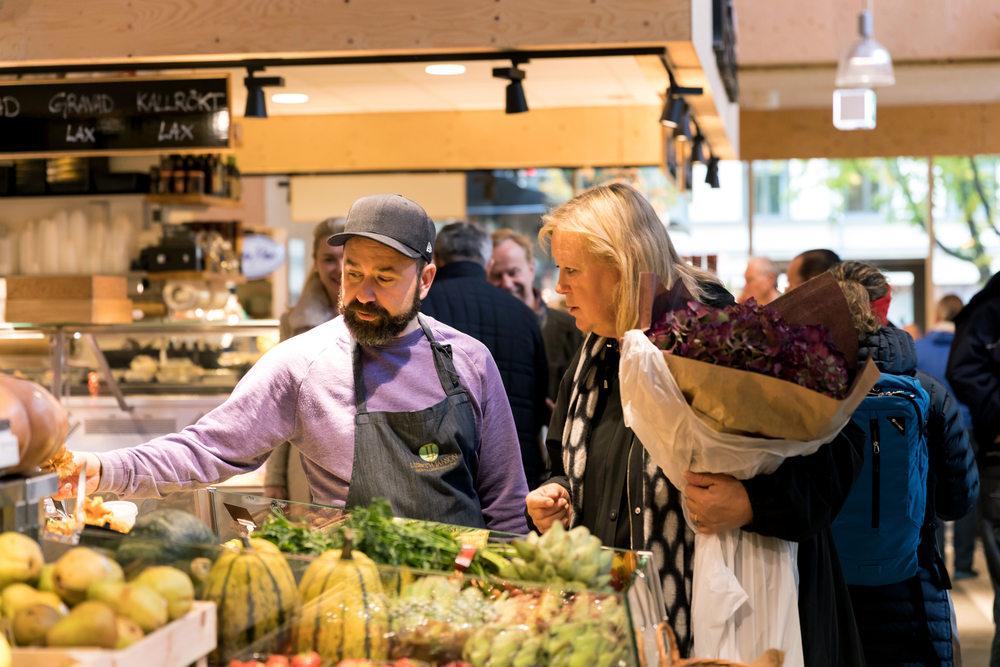This website uses cookies so that we can provide you with the best user experience possible. Cookie information is stored in your browser and performs functions such as recognising you when you return to our website and helping our team to understand which sections of the website you find most interesting and useful.
Transformations towards Sustainable Food Systems: Pathways, Governance, and Actors in a Swedish and European Union Context
Summary
In this doctoral thesis, Karin Eliasson investigated the perspectives and scope of action Swedish stakeholders have in sustainable food systems and policies, focusing on the European Green Deal. Among the Swedish stakeholders are included business actors (e.g. food retail, trade operators, and the food industry), food consumers, food producers, smallholders, indigenous and local communities, policymakers, and governing bodies.
Throughout her thesis, Eliasson explores how responsibility and accountability are attributed among actors within global food systems, drawing conclusions on the implications different sustainability pathways might lead to.

Key messages
- There is alignment among stakeholders on the need for a paradigm change in how food is valued and an agreement about the overarching goal of the affordability and sustainability of food.
- The business sector is perceived as important for driving sustainability transformations within the food systems, yet fuelling unsustainable production and consumption patterns with low prices, as well as shifting responsibility onto consumers.
- Although the ‘Farm to Fork Strategy’ from the European Green Deal describes how a broad spectrum of stakeholders will be engaged in defining sustainable food systems, a set of agricultural practices are put forward as desirable: organic farming, precision agriculture, agroforestry, and agro-ecology.
- It’s deemed crucial to lift voices from local communities, indigenous groups and smallholders affected by environmental changes because they have less capacity to act and transform food systems compared to other actors.
Conclusion
The author drew four overarching conclusions from the results:
- Shared goals and consensus are emphasised as essential. A diversity of transformative pathways and understandings of challenges and priorities needs to be recognised, with attention being paid to how specific choices might include and exclude pathways and actors.
- Emerging shifts in how food is valued open up opportunities for transformative change in which the ‘true’ cost of food is acknowledged, alongside recognition of non-economic values of food, which presupposes alignment at the practical, political, and personal levels.
- The identified pathways comprise public accountability regimes, incentives for more sustainable consumption, regulations to reduce resource use and impacts of food production.
- The attribution of accountability to trading operators proposed by the European Union highlights an extended focus on regulating flows and intermediate actors in food systems.
Citation
Eliasson, K. (2023). Transformations towards Sustainable Food Systems : Pathways, Governance, and Actors in a Swedish and European Union Context (PhD dissertation, Linköping University Electronic Press). https://doi.org/10.3384/9789180750936


 09/02/2023
09/02/2023

 Authors of this publication
Authors of this publication
